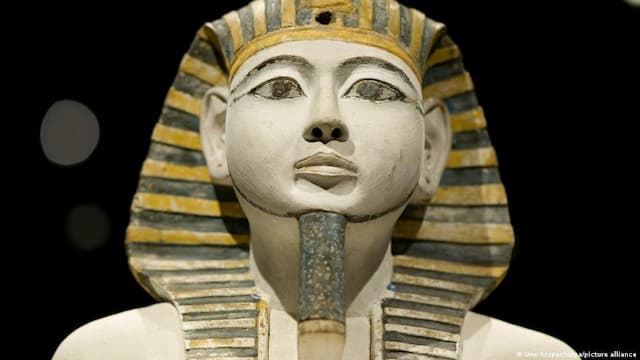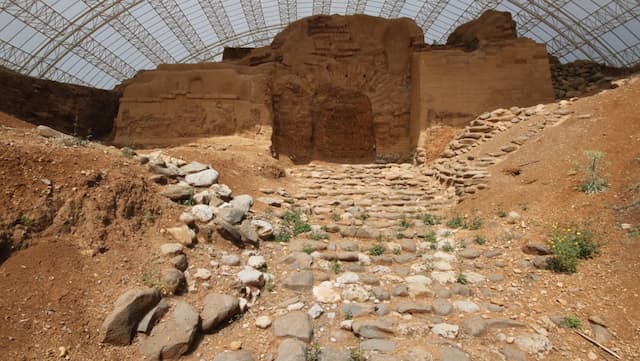The king who gives rest (Matthew 12:1-4)
Recognizing Jesus’ kingship is the only way to find rest.
Open Matthew 12:1-4.
Don’t let the chapter division stop you seeing how Matthew put his Gospel account together. The keyword at the end of Matthew 11 is rest. In contrast to this world’s rulers, Jesus gives his people rest (11:28). The only place this world will find rest is under the yoke of the gentle and humble king (11:29).
But the Galilean rulers wouldn’t let it rest. Even on the Sabbath, they were digging dirt on Jesus’ followers. They saw his hungry disciples pulling heads of grain and nibbling on the seeds as they walked through the fields (12:1-2).
“Harvesting they are! On the Sabbath! He’s not heaven’s anointed ruler! He’s leading people to disobey God’s laws! He’s not giving his people rest at all!” That’s not the exact words, but it is the accusation.
Observing the Sabbath was a key distinctive of Judaism. As well as the written Torah (Genesis – Deuteronomy), they had a highly developed oral Torah — rulings on exactly what you could and could not do on the Sabbath. You could eat a grape, provided you didn’t spit out the seed. If the seed grew, you had planted a grapevine, so that was forbidden.
Even today, Jewish people have robust debates on Shabbat law. The Shabbat lift stops at every floor so an observant Jew need not press a button. Why? Because the button’s electric circuit could cause a tiny spark, and Exodus 35:3 forbids lighting fires on the Sabbath. Driving a car really does ignite fire in the engine’s cylinders, so is that permitted on Shabbat? Some Rabbis say no; others permit it because not attending the shule would be worse.
But Jesus did not enter the arguments about the Sabbath. He changed the topic — debating his authority instead. The way the Gospel writers tell Jesus’ story, Sabbath observance was not an important topic for the Christian community.
Here’s how Matthew describes Jesus reframing the debate from the Sabbath to the issue of his kingly authority:
Matthew 12:1-4 (my translation)
1 That was the time Jesus went through the fields on the Sabbath. His followers were hungry, so they started to pick heads of grain to eat. 2 The Pharisees saw it and said to him, “Look, your followers are doing what they are not allowed to do on the Sabbath.”
3 He replied, “Haven’t you read what David did when he and his companions were hungry? 4 He went into God’s house and they ate the bread of the Presence which was not allowed for him or his companions, only for the priests.”
By what authority did David enter God’s house and eat the bread set out as a food offering to God? Only priests could eat this bread, and only at the end of the week — a ritual meal where the priests represented the people sitting at their heavenly sovereign’s table and sharing his bread (Leviticus 24:5-8). What authority did David have to eat from God’s table?
David was the anointed of the Lord, the chosen representative of the heavenly king’s reign on earth. At the time of this event (1 Samuel 21), Saul was officially Israel’s king, but God had rejected Saul’s kingship and anointed David instead (1 Samuel 16:13-14). Corrupted by power, Saul would not recognize the Lord’s anointed, treating David as a threat instead. That’s why David and his followers were on the run, and starving. The story ends badly: Saul reacted against the priests who gave food and support to David, accusing them of conspiracy, and executing them (1 Samuel 22:13-19).
The parallel is clear. In using this story, Jesus was claiming the regal authority to set the rules, like David. That casts his critics in the role of Saul — rulers who fail to recognize the authority of God’s anointed ruler among them. You can be sure they got the message. Matthew points out how similar the Galilean rulers were to Saul: “The Pharisees went out and conspired against him, how to destroy him” (12:14).
It started out as a Sabbath issue, Jesus’ failure to give his followers “rest.” Jesus turned it into an issue about his kingship.
I think Jesus was right. Arguing over the Sabbath cannot bring peace to our troubled world. Only submitting to God’s anointed king will bring rest.
What others are saying
R. T. France, The Gospel of Matthew, New International Commentary on the New Testament (Grand Rapids, MI: Eerdmans, 2007), 459:
It is David’s authority to override a legal prescription, not his attitude to the sabbath as such, which is at issue in Jesus’ argument. There would be little force in an argument which simply asserted that if the law has been broken once it can be broken again. … It was David, as David, who was permitted to do what was not lawful; and now Jesus places his own authority alongside that of David.
Tom Wright, Matthew for Everyone, Part 1: Chapters 1-15 (London: SPCK, 2004), 140–141:
When Jesus quoted this story to explain what he and his disciples were doing, he was saying two things, both of which explain the anger he aroused. First, he is the true king; like David, he has been anointed, but not yet enthroned. … Second, he and his followers are more important than the Temple itself; not just because people matter more than things, but because Jesus matters more than Solomon’s Temple and all that goes on in it.
This is fighting talk, both for the self-appointed guardians of tradition, the Pharisees, and for any priests to whom this extraordinary claim might get back. When Jesus finally arrives in Jerusalem, these same things—his royal claim, and his attitude to the Temple—are what get him arrested, tried and killed. Matthew wants us to see the shadow of the cross already falling over the story.
[previous: The blessing of rest]
[next: Greater than the temple?]
Seeking to understand Jesus in the terms he chose to describe himself: son of man (his identity), and kingdom of God (his mission). Riverview College Dean
View all posts by Allen Browne











